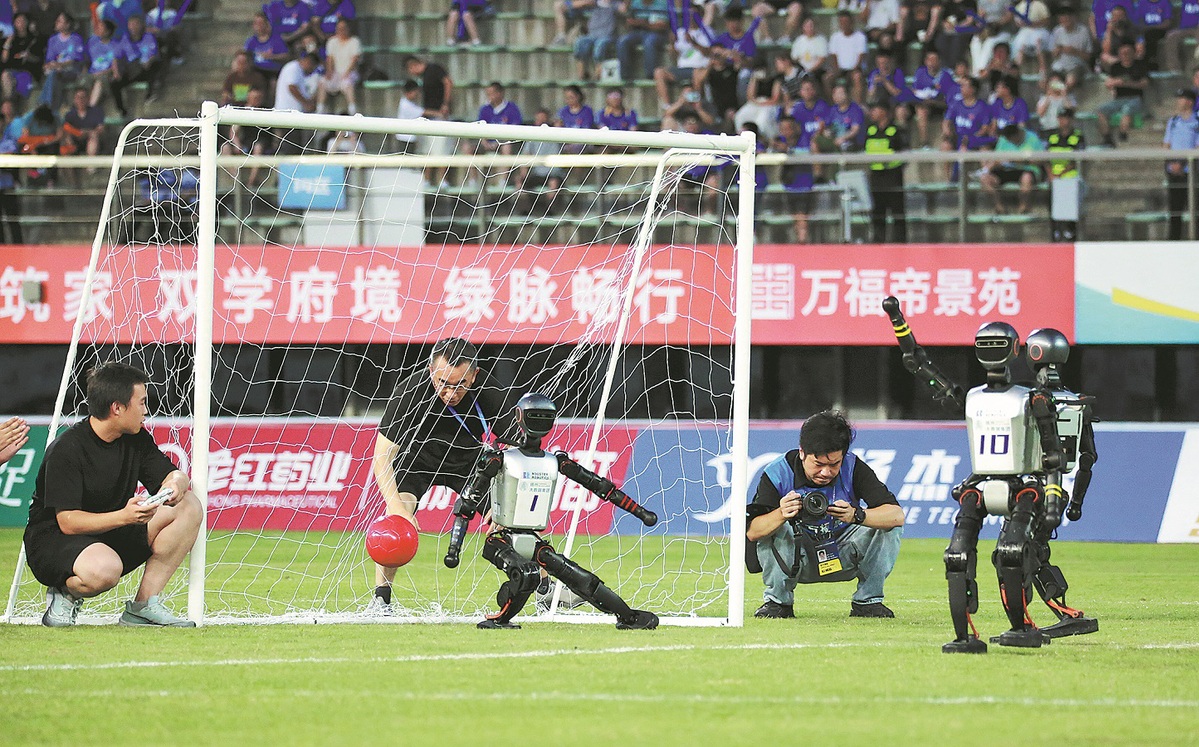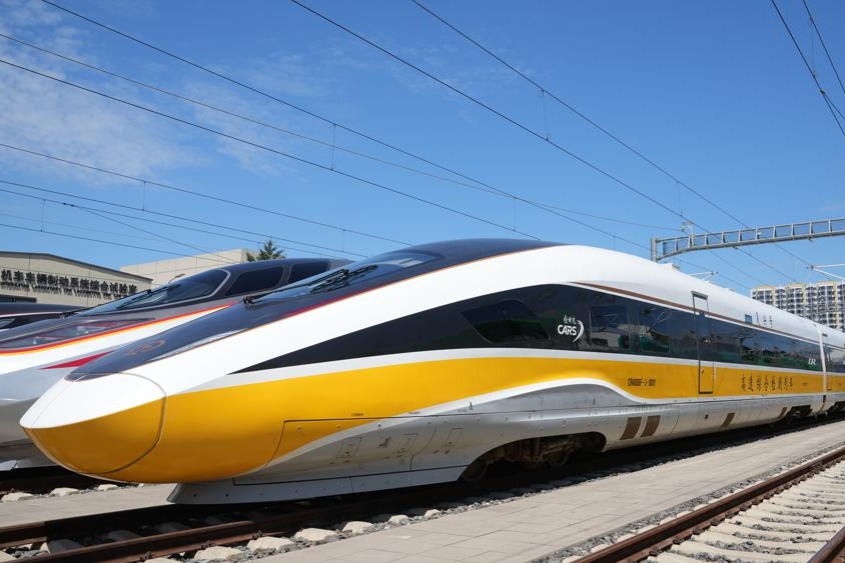Nation's AI products expand onto global stage
As of June, number of Chinese internet users exceeds 1.12 billion, report shows


In the first half of 2025, the number of generative artificial intelligence products increased rapidly in China and there was a continuous expansion of application scenarios, according to a report issued on Monday.
The China Internet Network Information Center's report showed that by March, 346 generative AI services had been registered with the Cyberspace Administration of China, the country's top internet regulator, propelling Chinese AI products onto the global stage.
One notable example was DeepSeek, which garnered over 30 million daily active users worldwide in less than 20 days of its launch, emerging as the fastest-growing generative AI application globally, and dominating markets in 140 countries and regions.
The report revealed that as of June, 80.9 percent of users employed generative AI products to address queries, and in 2024, China's AI industry surpassed a scale of 700 billion yuan ($97.5 billion), maintaining a growth rate exceeding 20 percent for several consecutive years.
Wang Changqing, an official from the information center's policy and international cooperation department, said that during the 14th Five-Year Plan (2021-25) period, China's vitality in technological applications such as AI has surged, and the country has also become the world's largest holder of AI patents.
Wang highlighted the popularity of generative AI services and products, particularly domestic AI models, which hold a significant advantage in user preference.
"Among the top five AI models in terms of user adoption, four are domestically developed," he noted.
He also praised the continuous improvement in AI technology iterations, saying that China not only has text-to-image and image-to-image technologies but also technologies supporting the transformation of 2D images into 3D figures.
"In short, AI has emerged as a pioneer in the development of the technology sector in the first half of the year, becoming a topic discussed heatedly by the public and further expanding its reach into offline services," he added.
The report also showed that the number of internet users in China exceeded 1.12 billion as of last month, among whom 161 million are age 60 and above and 322 million reside in rural areas.
Zhou Jie, deputy secretary-general of the China Netcasting Services Association, said that in addition, from January to June, Chinese short dramas powered by AI have also penetrated overseas markets, attracting an audience of more than 1 billion.
While expressing the hope that more creators would use the technology, Zhou also called for more research into cutting-edge issues in the field of AI combined with audiovisual technology.
Shifting to active prevention
Liu Yulin, head of the internet network information center, also welcomed the wide application of AI, saying that the technology is driving societal transformation, transitioning from internet connectivity to intelligent coexistence, and it is also reshaping industries, propelling intelligent changes in e-commerce, supply chains and beyond.
Liu stressed the importance of AI usage security, suggesting a shift from "passive defense" to "active prevention and control" to enable the proactive detection and interception of risks.
"This approach will help ensure that safety is maintained while developing technology," he added.
Huang Libin, former head of the energy conservation and comprehensive utilization department of the Ministry of Industry and Information Technology, underscored the urgency of governance amid the rapid evolution of AI.
"It is essential to delineate boundaries for the innovative development of the technology, particularly in dynamically addressing issues related to AI-generated forgeries and privacy infringements," Huang said.
He also advocated the bolstering of international exchanges and cooperation in areas including technical standards, cross-border data and capability guidelines, encouraging Chinese research institutions and enterprises to go global and contribute their solutions to AI governance.
- Nation's AI products expand onto global stage
- Meet the men who give nation's aircraft carriers a cutting edge
- China unveils regulations on housing rental sector
- Transportation sector experiences rapid development
- China launches first national standard on school meal services
- China's nano 'two-photon factory' sets world record





































